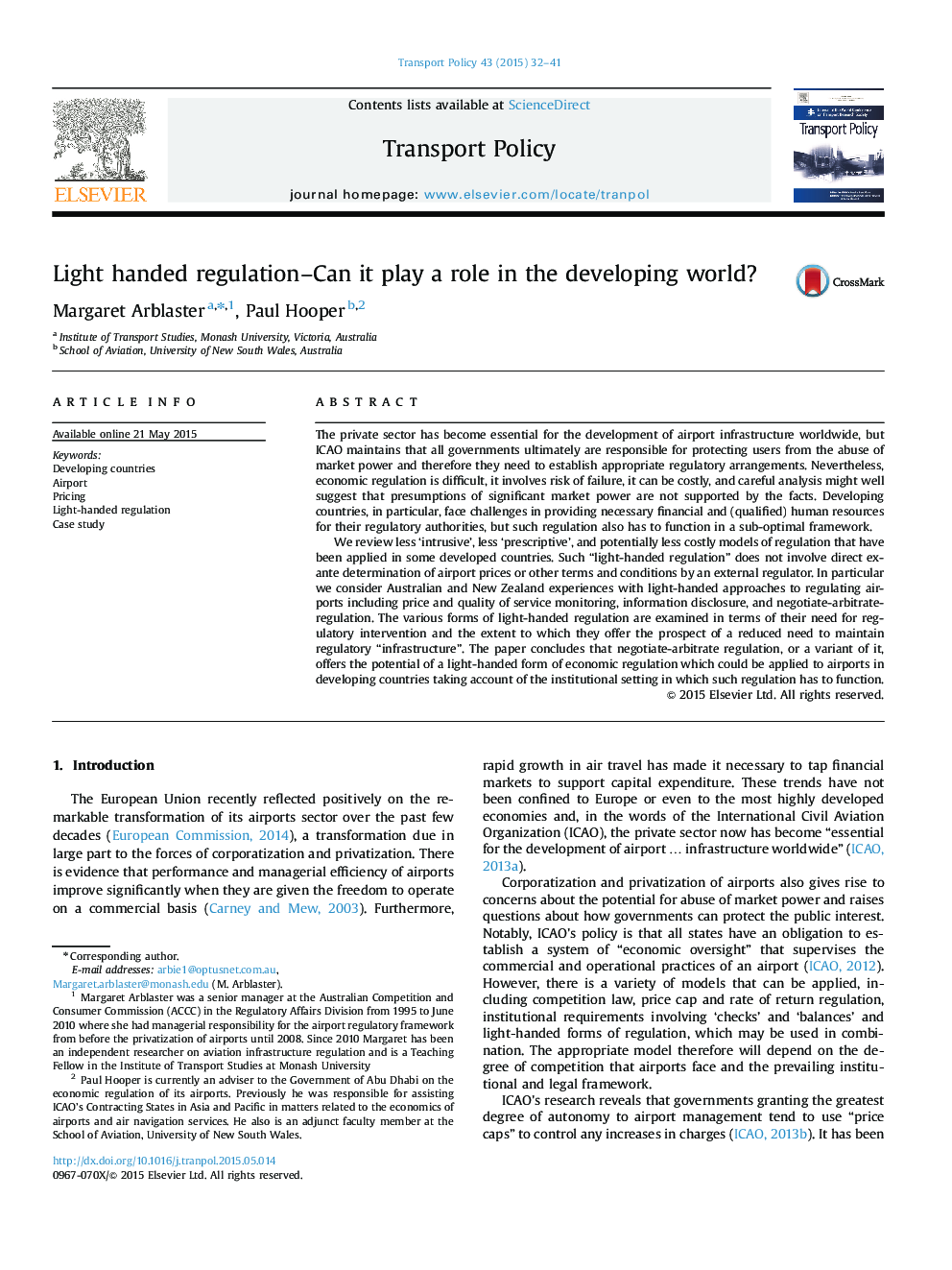| Article ID | Journal | Published Year | Pages | File Type |
|---|---|---|---|---|
| 1064733 | Transport Policy | 2015 | 10 Pages |
The private sector has become essential for the development of airport infrastructure worldwide, but ICAO maintains that all governments ultimately are responsible for protecting users from the abuse of market power and therefore they need to establish appropriate regulatory arrangements. Nevertheless, economic regulation is difficult, it involves risk of failure, it can be costly, and careful analysis might well suggest that presumptions of significant market power are not supported by the facts. Developing countries, in particular, face challenges in providing necessary financial and (qualified) human resources for their regulatory authorities, but such regulation also has to function in a sub-optimal framework.We review less ‘intrusive’, less ‘prescriptive’, and potentially less costly models of regulation that have been applied in some developed countries. Such “light-handed regulation” does not involve direct ex-ante determination of airport prices or other terms and conditions by an external regulator. In particular we consider Australian and New Zealand experiences with light-handed approaches to regulating airports including price and quality of service monitoring, information disclosure, and negotiate-arbitrate-regulation. The various forms of light-handed regulation are examined in terms of their need for regulatory intervention and the extent to which they offer the prospect of a reduced need to maintain regulatory “infrastructure”. The paper concludes that negotiate-arbitrate regulation, or a variant of it, offers the potential of a light-handed form of economic regulation which could be applied to airports in developing countries taking account of the institutional setting in which such regulation has to function.
